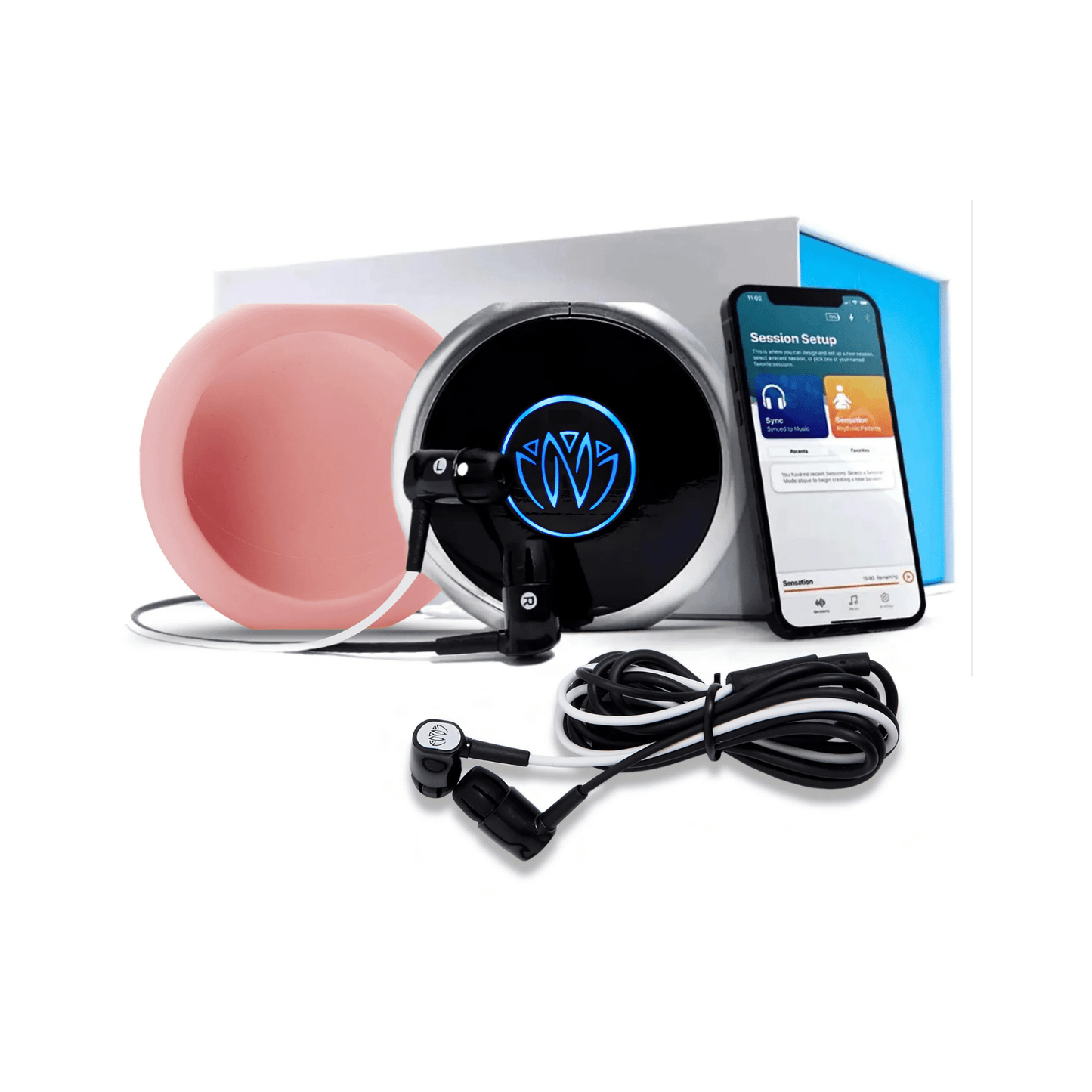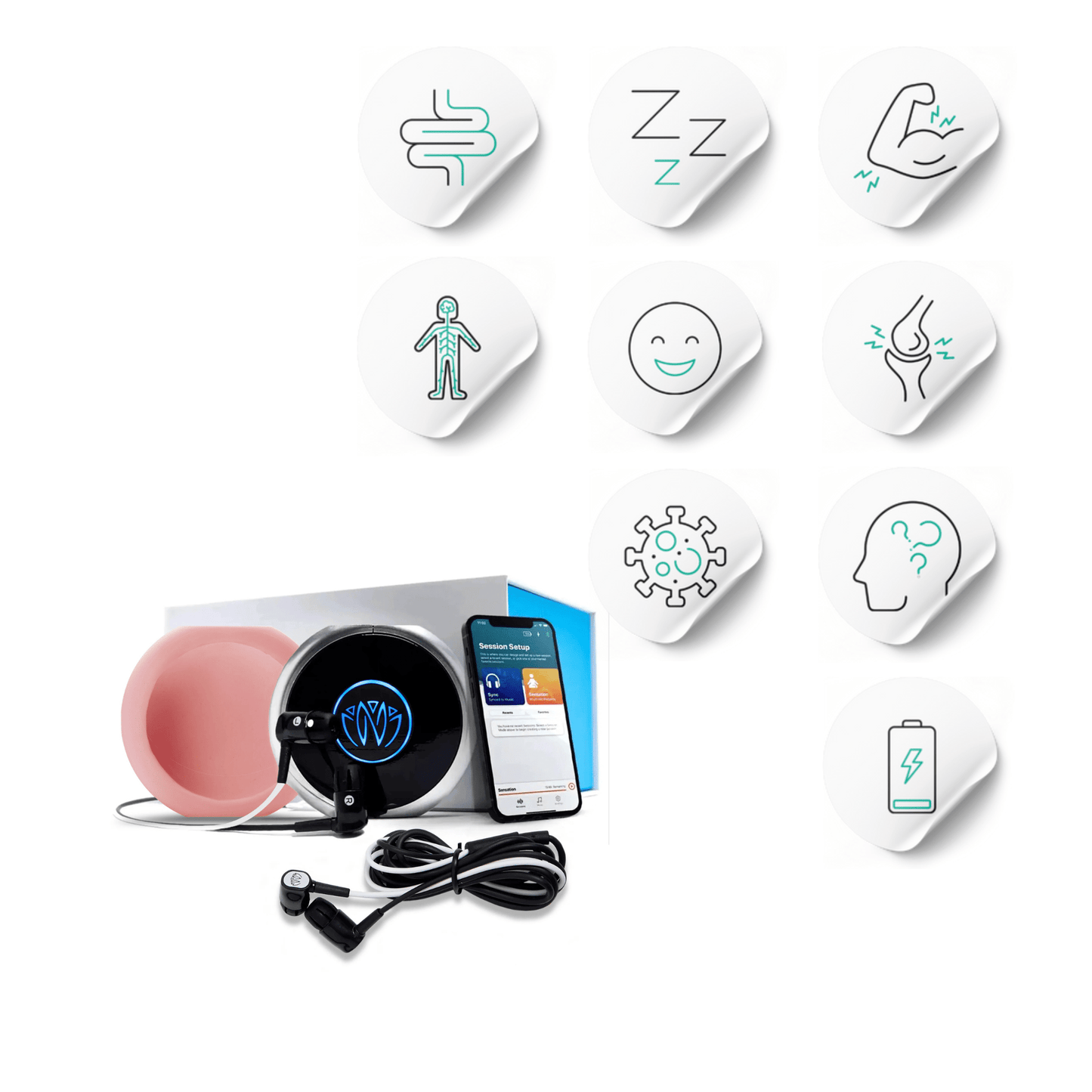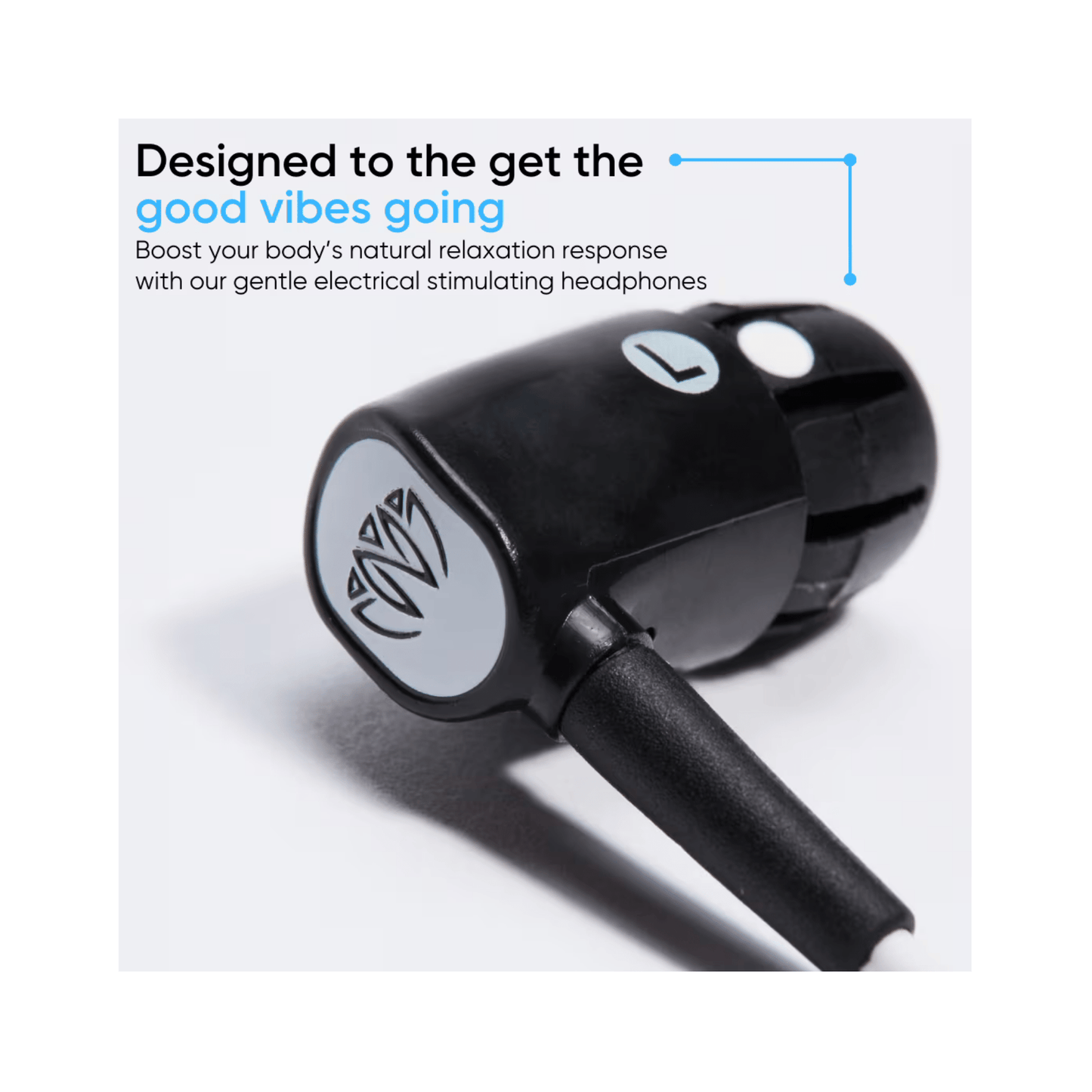Xen Vagus Nerve Stimulator | Mood, Pain and Nervous System Regulation
Brand: Xen
Couldn't load pickup availability
This product helps with
This product helps with
- Muscle Pain
- Joint Pain
- Brain Fog
- General Fatigue
- Trouble Sleeping
- Mood Struggles
- Immune Challenges
- Gut Issues
- Nerve Dysregulation
Product Description
Product Description
Xen by Neuvana is a wearable technology that stimulates a specific branch of your vagus nerve, which is linked to your body's stress response. By wearing the special earbuds with the left one in your left ear and connecting the Xen unit to the Neuvana App on your smartphone, you will receive a gentle electrical signal that is designed to help rebalance and strengthen your nervous system.
How it helps those with Long COVID
How it helps those with Long COVID
We often experience persistent symptoms like fatigue, cognitive impairments, and autonomic dysfunction. Vagus nerve stimulation may help modulate the autonomic nervous system, potentially reducing inflammation and improving heart rate variability. By enhancing parasympathetic activity, the device could alleviate chronic fatigue and cognitive issues associated with long COVID. Ongoing research is exploring the efficacy of vagus nerve stimulation in managing long COVID symptoms.
Scientific Explanation
Scientific Explanation
The vagus nerve is a critical component of the autonomic nervous system, influencing various bodily functions, including heart rate, digestion, and immune response. Nurosym™ employs transcutaneous auricular vagus nerve stimulation (tVNS) by delivering electrical impulses to the auricular branch of the vagus nerve via the tragus. This stimulation activates parasympathetic pathways, promoting relaxation and reducing sympathetic overactivity. Clinical studies have demonstrated that tVNS can enhance heart rate variability, decrease inflammatory markers, and improve symptoms in conditions like depression and chronic pain. By restoring autonomic balance, Nurosym™ may offer therapeutic benefits for individuals experiencing dysautonomia-related symptoms, including those associated with long COVID






